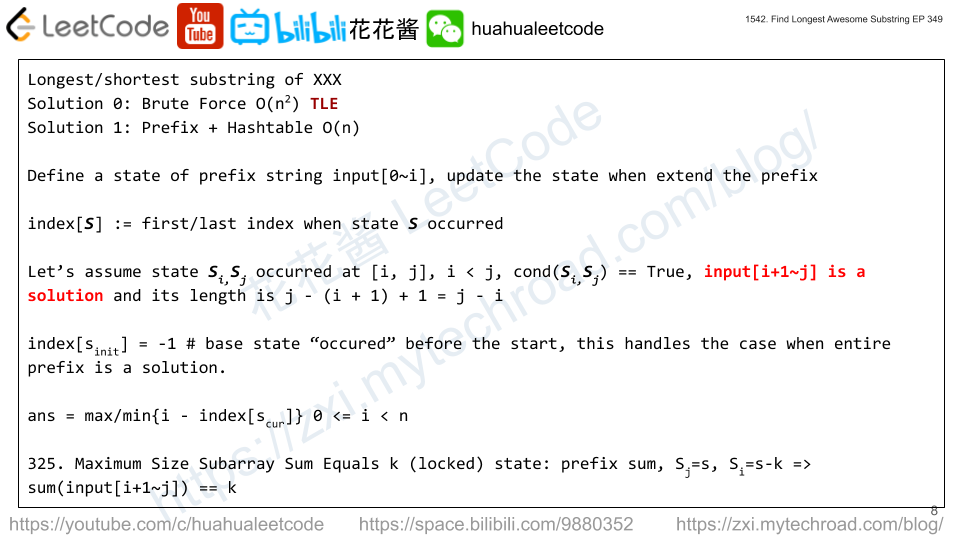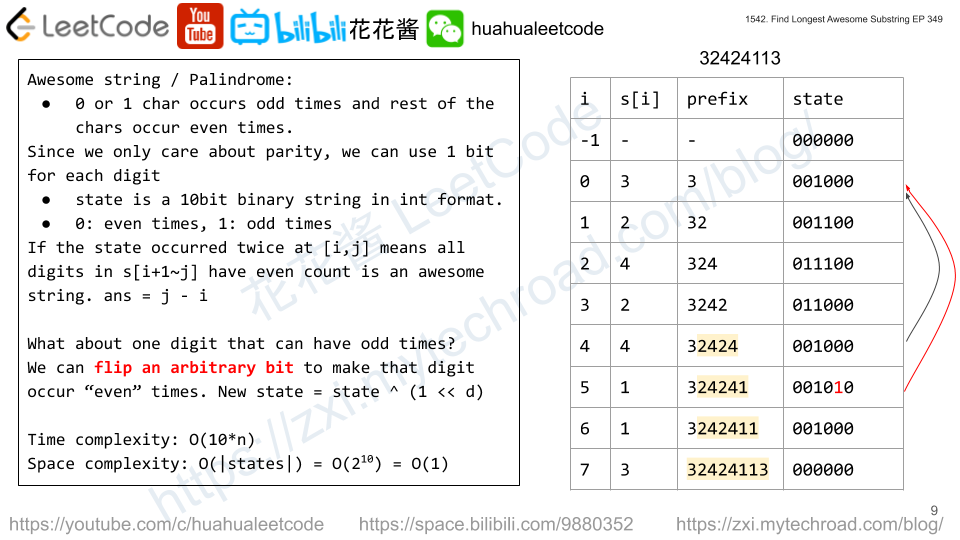You are given an integer array nums and an integer x. In one operation, you can either remove the leftmost or the rightmost element from the array nums and subtract its value from x. Note that this modifies the array for future operations.
Return the minimum number of operations to reduce x to exactly 0 if it’s possible, otherwise, return -1.
Example 1:
Input: nums = [1,1,4,2,3], x = 5 Output: 2 Explanation: The optimal solution is to remove the last two elements to reduce x to zero.
Example 2:
Input: nums = [5,6,7,8,9], x = 4 Output: -1
Example 3:
Input: nums = [3,2,20,1,1,3], x = 10 Output: 5 Explanation: The optimal solution is to remove the last three elements and the first two elements (5 operations in total) to reduce x to zero.
Constraints:
1 <= nums.length <= 1051 <= nums[i] <= 1041 <= x <= 109
Solution1: Prefix Sum + Hashtable
Time complexity: O(n)
Space complexity: O(n)
C++
|
1 2 3 4 5 6 7 8 9 10 11 12 13 14 15 16 17 18 19 20 21 22 23 24 25 |
// Author: Huahua class Solution { public: int minOperations(vector<int>& nums, int x) { const int n = nums.size(); vector<int> l(n), r(n); unordered_map<int, int> ml, mr; ml[0] = mr[0] = -1; for (int i = 0; i < n; ++i) { l[i] = nums[i] + (i > 0 ? l[i - 1] : 0); r[i] = nums[n - i - 1] + (i > 0 ? r[i - 1]: 0); ml[l[i]] = mr[r[i]] = i; } int ans = INT_MAX; for (int i = 0; i < n; ++i) { int s1 = x - l[i]; auto it1 = mr.find(s1); if (it1 != mr.end()) ans = min(ans, i + 1 + it1->second + 1); int s2 = x - r[i]; auto it2 = ml.find(s2); if (it2 != ml.end()) ans = min(ans, i + 1 + it2->second + 1); } return ans > n ? -1 : ans; } }; |
Solution2: Sliding Window
Find the longest sliding window whose sum of elements equals sum(nums) – x
ans = n – window_size
Time complexity: O(n)
Space complexity: O(1)
C++
|
1 2 3 4 5 6 7 8 9 10 11 12 13 14 15 |
// Author: Huahua class Solution { public: int minOperations(vector<int>& nums, int x) { const int n = nums.size(); int target = accumulate(begin(nums), end(nums), 0) - x; int ans = INT_MAX; for (int s = 0, l = 0, r = 0; r < n; ++r) { s += nums[r]; while (s > target && l <= r) s -= nums[l++]; if (s == target) ans = min(ans, n - (r - l + 1)); } return ans > n ? -1 : ans; } }; |

